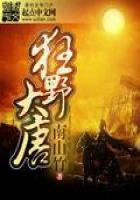The monk became first a theologian and then a philosopher, whether of the school of Plato or of Aristotle he did not know. He began to speculate on questions which had agitated the Grecian schools,--the origin of evil and of matter; whether the world was created or uncreated; whether there is a distinction between things visible and invisible; whether we derive our knowledge from sensation or reflection; whether the soul is necessarily immortal; how free-will is to be reconciled with God's eternal decrees, or what the Greeks called Fate; whether ideas are eternal, or are the creation of our own minds. These, and other more subtile questions--like the nature of angels--began to agitate the convent in the ninth century.
It was then that the monk Gottschalk revived the question of predestination, which had slumbered since the time of Saint Augustine. Although the Bishop of Hippo was the oracle of the Church, and no one disputed his authority, it would seem that his characteristic doctrine,--that of grace; the essential doctrine of Luther also,--was never a favorite one with the great churchmen of the Middle Ages. They did not dispute Saint Augustine, but they adhered to penances and expiations, which entered so largely into the piety of the Middle Ages. The idea of penances and expiations, pushed to their utmost logical sequence, was salvation by works and not by faith. Grace, as understood by the Fathers, was closely allied to predestination; it disdained the elaborate and cumbrous machinery of ecclesiastical discipline, on which the power of the clergy was based. Grace was opposed to penance, while penance was the form which religion took; and as predestination was a theological sequence of grace, it was distasteful to the Mediaeval Church. Both grace and predestination tended to undermine the system of penance then universally accepted. The great churchmen of the Middle Ages were plainly at war with their great oracle in this matter, without being fully aware of their real antagonism.
So they made an onslaught on Gottschalk, as opposed to those ideas on which sacerdotal power rested,--especially did Hinemar, Archbishop of Rheims, the greatest prelate of that age.
Persecuted, Gottschalk appealed to reason rather than authority, thus anticipating Luther by five hundred years,--an immense heresy in the Middle Ages. Hinemar, not being able to grapple with the monk in argument, summoned to his aid the brightest intellect of that century,--the first man who really gave an impulse to philosophical inquiries in the Middle Ages, the true founder of scholasticism.
This man was John Scotus Erigena,--or John the Erin-born,--who was also a monk, and whose early days had been spent in some secluded monastery in Ireland, or the Scottish islands. Somehow he attracted the attention of Charles the Bald, A. D. 843, and became his guest and chosen companion. And yet, while he lived in the court, he spent the most of his time in intellectual seclusion. As a guest of the king he may have become acquainted with Hinemar, or his acquaintance with Hinemar may have led to his friendship with Charles. He was witty, bright, and learned, like Abelard, a favorite with the great. In his treatise on Predestination, in which he combated the views of Gottschalk, he probably went further than Hinemar desired or expected: he boldly asserted the supremacy of reason, and threw off the shackles of authority. He combated Saint Augustine as well as Gottschalk. He even aspired to reconcile free-will with the divine sovereignty,--the great mistake of theologians in every age, the most hopeless and the most ambitious effort of human genius,--a problem which cannot be solved. He went even further than this: he attempted to harmonize philosophy with religion, as Abelard did afterwards. He brought all theological questions to the test of dialectical reasoning.
Thus the ninth century saw a rationalist and a pantheist at the court of a Christian king. Like Democritus, he maintained the eternity of matter. Like a Buddhist, he believed that God is all things and all things are God. Such doctrines were not to be tolerated, even in an age when theological speculations did not usually provoke persecution. Religious persecution for opinions was the fruit of subsequent inquiries, and did not reach its height until the Dominicans arose in the thirteenth century. But Erigena was generally denounced; he fell under the censure of the Pope, and, probably on that account, took refuge about the year 882 in England,--it is said at Oxford, where there was probably a cathedral school, but not as yet a university, with its professors'
chairs and scholastic honors. Others suppose that he died in Paris, 891.
A spirit of inquiry having been thus awakened among a few intellectual monks, they began to speculate about those questions which had agitated the Grecian schools: whether genera and species--called "universals," or ideas--have a substantial and independent existence, or whether they are the creation of our own minds;whether, if they have a real existence, they are material or immaterial essences; whether they exist apart from objects perceptible by the senses. It is singular that such questions should have been discussed in the ninth century, since neither Plato nor Aristotle were studied. Unless in the Irish monastic schools, it may be doubted whether there was a Greek scholar in Western Europe,--or even in Rome.
No very remarkable man arose with a rationalizing spirit, after Erigena, until Berengar of Tours in the eleventh century, who maintained that in the Sacrament the presence of the body of Christ involves no change in the nature and essence of the bread and wine.















